Rio Olympics 2016: Jessica Ennis-Hill & Toni Minichiello - a coach's story
- Published
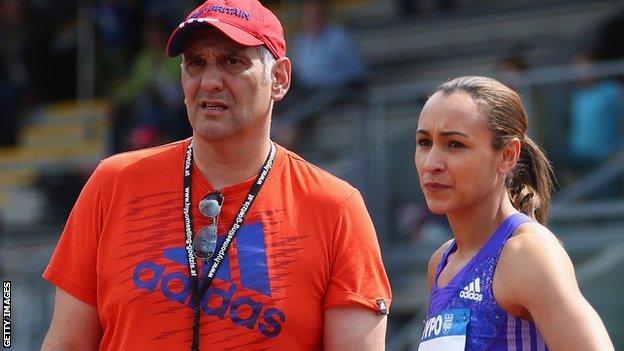
Minichello has helped guide Ennis-Hill from her school years through to Olympic gold
Jessica Ennis-Hill has a unique opportunity, according to her coach. "This is the last Olympic Games that Jess will do," says Toni Minichiello.
"No British woman has ever retained an Olympic title in track and field. This is an historical opportunity. She could create history."
If anyone is qualified to give the perspective on Ennis-Hill's journey from teenager to Olympic and world champion - and a mum - it is Sheffield-born Minichiello. He has guided her all the way through her athletics career.
Minichiello has seen Ennis-Hill become one of the best-known and most successful athletes the UK has ever produced. A fierce competitor, her will to win secured her place in the hearts of the British people as she secured heptathlon gold at the 2012 London Olympics.
She then went on to confound all expectations by winning World Championship gold in Beijing last year, 14 months after the birth of her son Reggie.
What makes her story even more extraordinary is that she has broken with received wisdom by staying with the same coach throughout.
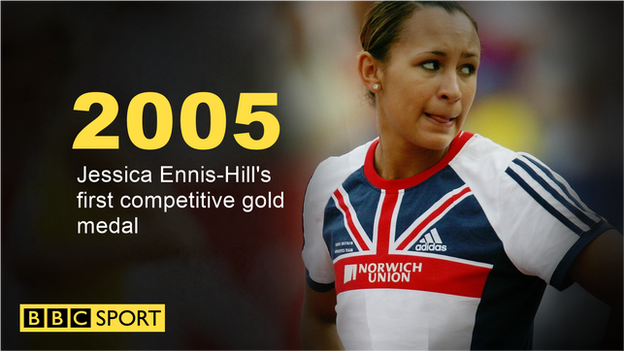
Toni Minichiello has coached Ennis-Hill since 2003, with her first gold medal coming in the 2005 European Junior Championships in Lithuania
It is difficult to think of any other coach who has guided an athlete all the way from their high school years to an Olympic gold. Yet that is what Minichiello has done.
The pair have worked together for 17 years; I have watched their preparations for August's Games in Rio as the writer of Minichiello's blog, external, and by working on a BBC documentary to be broadcast on Saturday.
"Toni has coached me since I was 13," said Ennis-Hill, now 30. "Not many athletes and coaches stay together for that long and we are just about there.
"He brought me through from being a young child who didn't know much about athletics, who enjoyed being active and running around, to becoming Olympic and world champion. So he's definitely doing something right."
'She just sees me as a grumpy old bloke'
Many people have attempted to describe the relationship between Minichiello and Ennis-Hill. Imagine all the highs and lows you have experienced with your best friend and then cram them into one afternoon.
"People have described it in lots of different ways; brother, sister, father, daughter, antagonistic," Minichiello said. "She just sees me as a grumpy old bloke."
Minichiello can be grumpy. He is also funny, fierce, studious and immensely patient when required to be so. He does not suffer fools, often forcing his disgruntled way through swathes of bureaucracy to protect his athletes. He does this because, for all his anger at the faults he sees in the system, Minichiello cares.
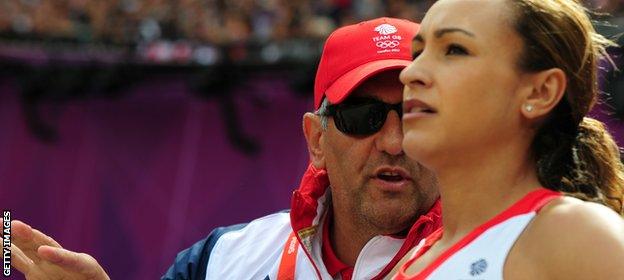
Minichiello is "a grumpy old bloke" who has guided Ennis-Hill to a 2006 Commonwealth bronze and a gold at the Olympic Games in London 2012
Above all he cares about his athletes, whether they are Olympic champions or grafters on the fringe. He pushes each and every athlete hard, challenging them to continually improve.
He is at the track six days a week, every week. That was how he met Ennis-Hill, as a teenager, in Sheffield. Her steered her towards success, through the agony of missing the 2008 Beijing Olympics with a foot injury, and then back to the top.
After she won the heptathlon at London 2012, things changed in their relationship. Ennis-Hill took a break to give birth to her son. When she returned to training, Minichiello was faced with a completely different athlete.
New baby, new Jess
When Ennis-Hill's coach learnt she was pregnant
For Ennis-Hill, attempting a comeback after having a baby was tough. She admitted that she doubted herself.
"We had a lot of times where I said: 'I'm rubbish, I can't do it - I can't run like I used to, I can't hurdle like I used to,'" she said. "And he'd just say to me: 'You know it's going to take time. It's not going to happen straight away. Just stop comparing yourself to who you were in 2012."
Many within the sport wrote Ennis-Hill off. For Minichiello, that was a red rag to a bull. His response was: "Watch this."
"It was a brand new challenge," Ennis-Hill said. "Everything up to that point was what I knew from the age of 13: What works, what doesn't.
"Then they give you a brand new Jessica Ennis. Everything you had before goes out the window. You've got lax tendons, childcare issues, sleep deprivation. It's a case of: OK, do it again, but with this very different person. So it's kind of learning on the hoof."
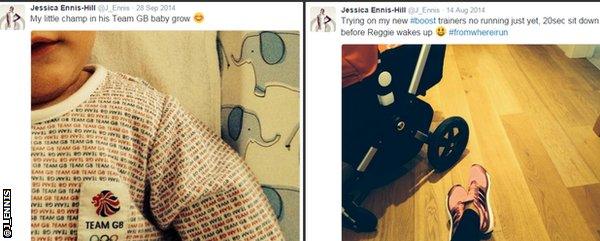
Ennis-Hill and Minichiello have had to adapt to new training regimes following the birth of her son, Reggie.
Having the ambition and determination to prove the doubters wrong didn't make it any easier. Ennis-Hill, understandably, found it hard to come to terms with her post-pregnancy body.
That was why Minichiello introduced Post Pregnancy Personal Bests, or PPPBs, as he refers to them. It helped Ennis-Hill redefine her view of herself as an athlete.
"An athlete who returns after having a baby is not the same athlete," the coach said. "It is not the same as coming back from injury. It's so much more than that," said Minichiello.
"I had the same conversation with Jessica three times a week, every week for six months, of: 'I'll never get back, I don't think I'll get back, I'll never do this, why can't I do this?'
"The frustration and the anxiety - she would always measure herself against the athlete she was, but physically she wasn't the same person. It was really tough mentally. Her body was changing month to month."
Ennis-Hill's determination and Minichiello's drive proved a potent combination, though. In August 2015, she completed a remarkable sporting comeback by winning heptathlon gold at the World Championships in Beijing. Yet there would still be difficulties ahead.
Writing plans in pencil
A good coach understands the need to constantly refine and adapt plans. The idea is: Always write your plans in pencil and have an eraser ready.
Hopes were high that, after winning the world title in Beijing, Ennis-Hill would go from strength to strength.
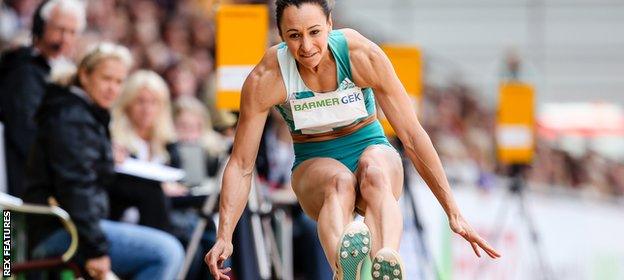
A long jump personal best of 6.63m in June proved to Ennis-Hill and Minichiello that pregnancy would not stop her achieving in the heptathlon
But she had to pull out of a major event at Gotzis in May because of injury. There was speculation that, post-pregnancy, she was losing the ability to compete at the highest level.
Minichiello successfully argued for Ennis-Hill to have her Olympic slot confirmed without the requirement for additional competition and she was placed into a recovery programme. The result was victory at the IAAF Combined Challenge in Ratingen, Germany, in late June.
"In Ratingen, not only did we achieve PPPBs, we also got a genuine personal best in the long jump," Minichiello said.
If the performance was important, so too was its timing. It was Ennis-Hill's last chance to compete in a full heptathlon before she heads to Brazil.
The Road to Rio
With less than a month to go to the start of the Olympics, Ennis-Hill is ready to defend her Olympic title.
"I just want to get to Rio, to be on that start line for those two days, knowing that I've done all I can do training wise, that I'm in good shape, no injury and ready to go," she said.
"And then I'd love to get back on the podium, love to defend my title and be there and come away with another medal."
Watch Jessica Ennis-Hill: A Coach's Story on the BBC iPlayer here.
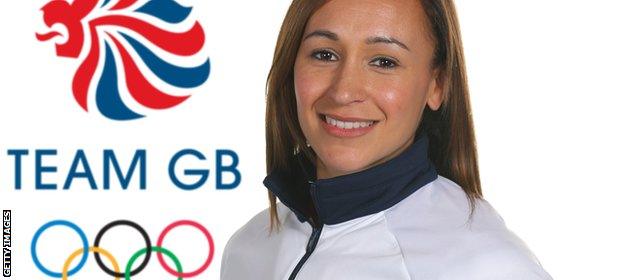
Ennis-Hill heads to Brazil as the defending heptathlon Olympic champion
- Published14 July 2016
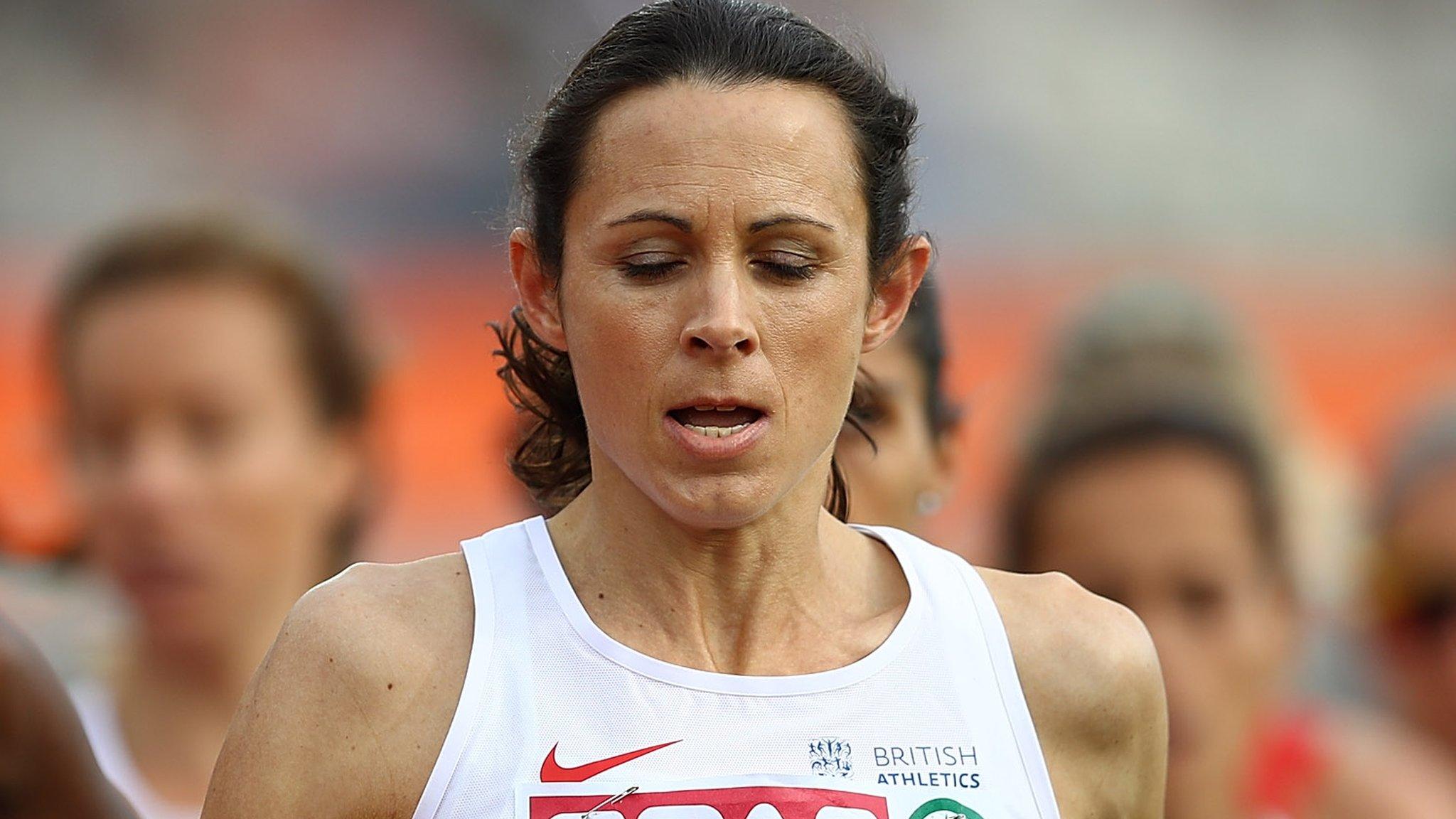
- Published11 July 2016
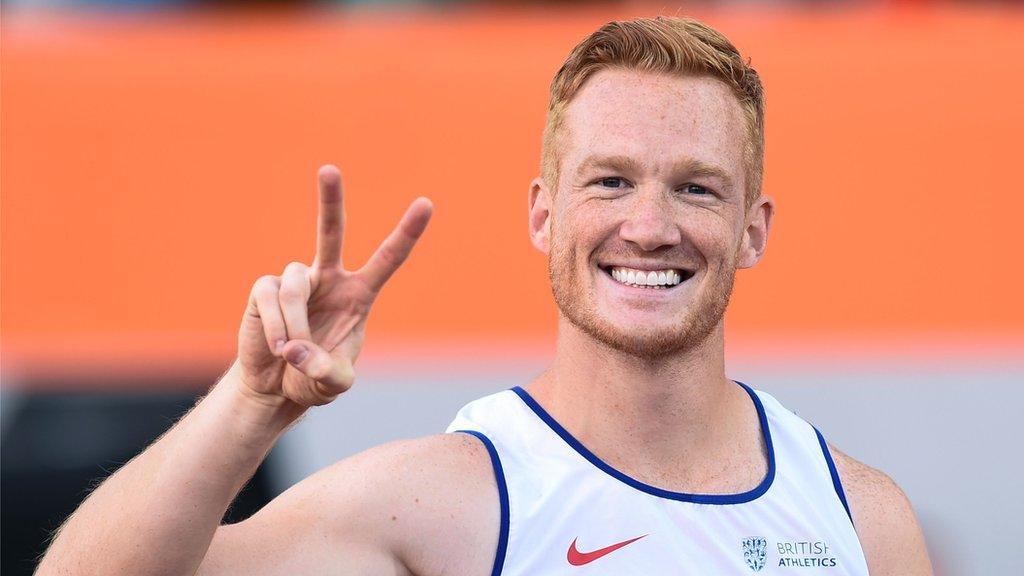
- Published19 July 2016
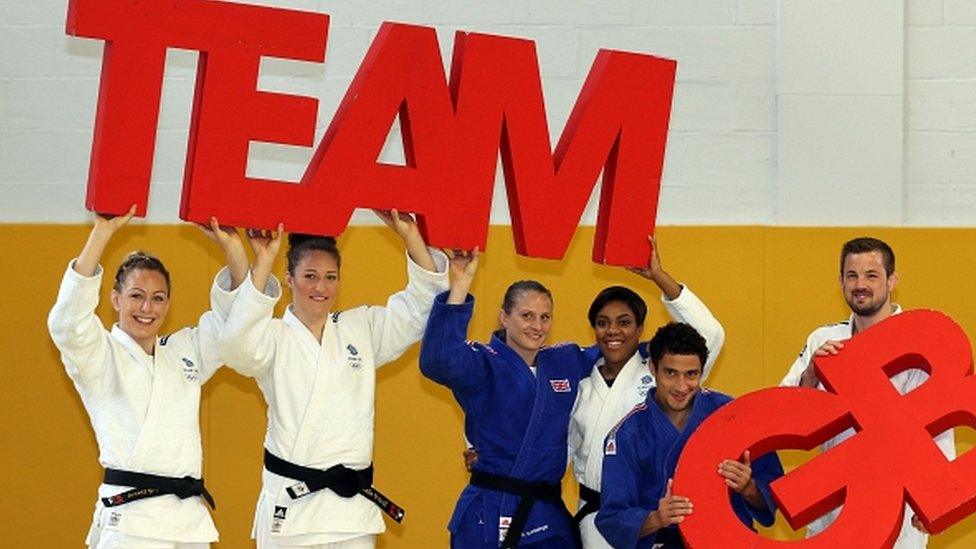
- Published13 May 2016

- Published19 July 2016
